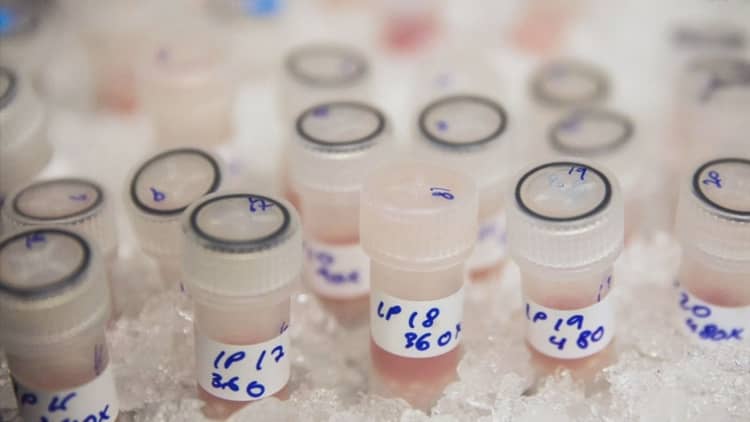
Terminally ill blood cancer patients have experienced complete remission following the introduction of a radical new treatment, scientists claim.
Speaking at the annual meeting for the American Association for the Advancement for Science (AAAS), researcher Stanley Riddell said Monday the results were unprecedented.
"In the laboratory and in clinical trials, we are seeing dramatic responses in patients with tumors.
"Unlike a chemotherapy drug which destroys cancer cells that are growing, you put in a living therapy that engages the cancer in hand to hand combat".
very large tumors simply melt away
The new cancer therapy from Riddell's team uses the body's own immune cells to attack tumors.
"When you see it work, it is so amazing-the bone marrow just goes from being full of leukemia to being in remission, and very large tumors simply melt away," Riddell said on his company website.
The technique involves taking T-cells from patients, arming them with molecules that target cancer, and putting them back into the body.
The new T-cells then seek and destroy cancer.
According to data presented at the AAAS meeting, and reported by several news outlets, one trial witnessed 94 percent of patients with a form of leukaemia see symptoms vanish.
And patients with other blood cancers saw response rates of more than 80 percent, with half experiencing total remission.
Dr Chiara Bonini, of the San Raffaele Scientific Institute in Milan, Italy called the results revolutionary.
"The last time [I saw] a change in remission rates like this must have been in 2000."
"T-cells are a living drug, and in particular they have the potential to persist in our body for our whole lives," she said at the joint presentation.
And she believes a product coming to market is not long off.
"I think we are at the beginning of a road. I think the first products will be available very soon," Dr Bonini said.
Detailed findings of the clinical trials are to be published later this year.



